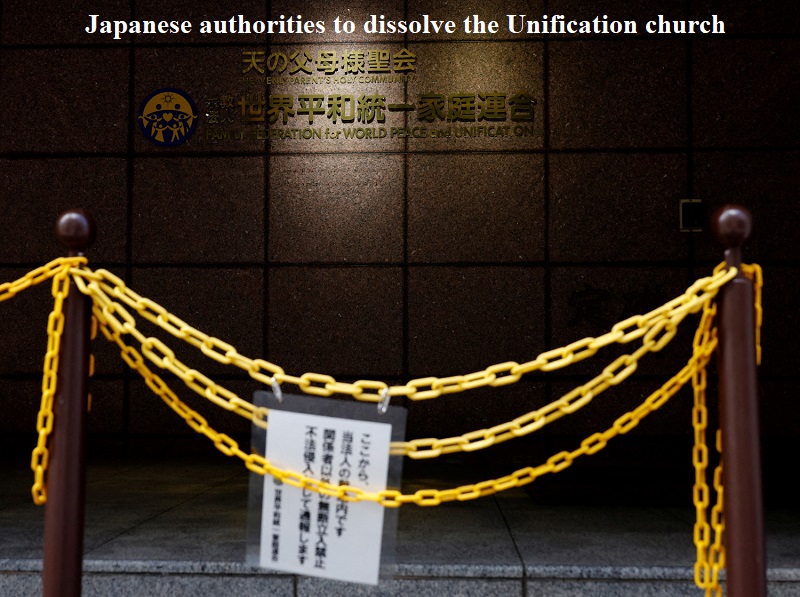
Japanese authorities are reportedly considering the dissolution of the Unification Church following the assassination of former Prime Minister Shinzo Abe last year in July, according to local media citing a government source.
The report suggests that a government religious organization council meeting has taken place, and a formal request to dissolve the group could be submitted to the Tokyo District Court as early as October if the evidence and testimonies align.
However, the report also highlights doubts surrounding the dissolution, as some government officials prefer to take action only after considering the evidence. One concern is the potential difficulty in demonstrating that illegal activities occurred at an organizational level.
Should the Unification Church be dissolved, it would lose its status as a religious corporation and the associated tax benefits, although it could still operate as an entity.
The investigation into the Unification Church was launched after its connections to ruling party lawmakers sparked public outrage. Prime Minister Fumio Kishida aims to convey that the government is severing ties with the Unification Church through this action.
Unnamed sources cited by the Asahi Shimbun newspaper stated that the government views dissolution as appropriate because the church has been involved in “vicious, organized, and ongoing” activities that outweigh constitutionally protected religious liberties.
Under Japan’s religious corporations law, a court can issue a dissolution order if an organization has committed acts “clearly recognized as being substantially detrimental to public welfare.”
According to the Mainichi Shimbun, dissolved organizations no longer enjoy the benefits of being religious corporations and are subject to corporate taxes, real estate taxes, and taxes on donation income.
The Unification Church, officially known as the Family Federation for World Peace and Unification, was founded in South Korea in 1954 by anti-communist Sun Myung Moon.
Japan hosts the fourth-largest congregation out of the church’s 10 million members worldwide and was one of the first countries it reached during its international expansion.
Although a representative has claimed that only about 100,000 members are active and that many second-generation members have left, the church asserts that Japan is its primary source of income.
In Japan, the church is often viewed as a cult due to its mass weddings and solicitation of donations. However, the church states that it no longer engages in the aggressive practices, including door-to-door sales, that it acknowledged in the past.
The suspect in the assassination of former Prime Minister Shinzo Abe claimed that the church persuaded his mother to part with approximately $700,000, according to his social media posts and news reports.
A lawyers’ group in Japan reported that the church had collected nearly $1 billion from followers since 1987 and faced some 35,000 compensation claims.

Post Your Comments